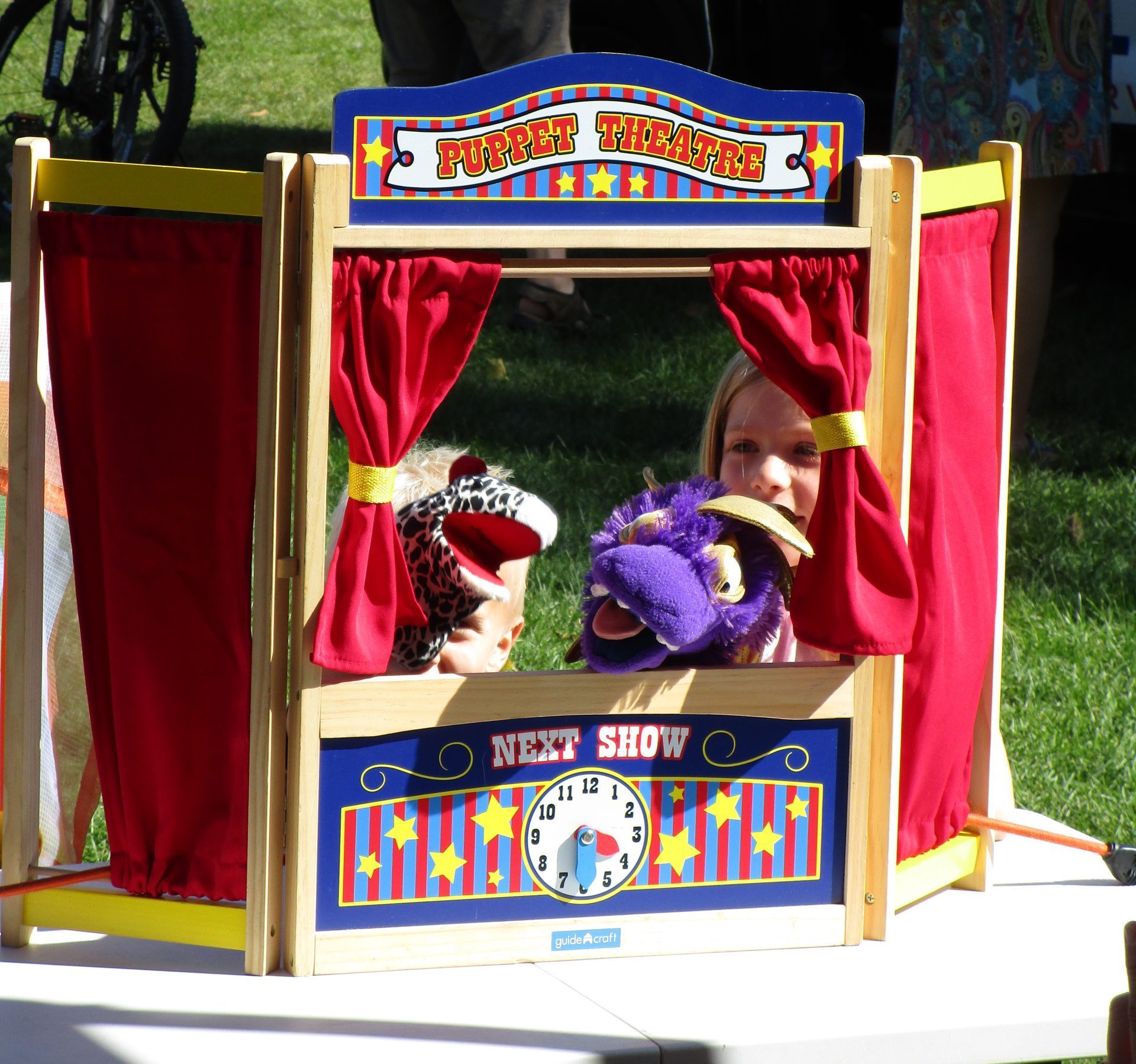Play isn’t just for fun – it's how young children learn. Play helps your child explore and understand how the world works. Play is one of the five practices of early literacy.
Through play, children develop language skills and practice putting thoughts into words. Here are some simple ways you and your child can play with language and reading.
Pretend Play
Encourage your child’s pretend play. Children will naturally create imaginary scenarios – follow their lead and help create a grocery store, restaurant or mermaid lagoon together. This helps them practice using words and builds their vocabulary and storytelling skills. Specific props aren’t necessary for pretend play. Household objects, boxes and scrap paper are all great tools for creating an imaginary world.
Sensory Play and Language Development
Sensory play is a play that engages your child’s senses. Sensory play can look like exploring different textures (sand, water, dry pasta), listening to music, or watching glitter move through a water bottle. This kind of play is especially great for toddlers, who are starting to explore their environment and gain new words from the world around them. Use descriptive words as you explore with your child and encourage them to express how each new experience makes them feel.
Story Retelling with props
After reading a story, encourage your child to tell the story using puppets, stuffed animals or dolls. They can act out characters and describe what's happening in the story. This helps them practice storytelling and using words to express themselves. Puppets don’t have to be fancy: socks or paper bags all work well to act out a favourite story!
Play with words and letters
Incorporate letters and words into playtime. Blocks with letters, magnetic letters on the fridge, foam letters in the bath, or letters and words you create with your child out of paper or other handy sources are all great tools for letter and wordplay. Say the sounds of letters together, come up with all the words you know that start with a certain letter and match up words that rhyme. Following your child’s lead and exploring letters and words together will build letter knowledge, word recognition and phonemic awareness.
Learning through play should be enjoyable and directed by your child. By encouraging play-based activities in your child's day, you are supporting their early literacy learning through exploration, creativity and fun.
Recommended Resources:
- Get inspired with these playful books babies and toddlers and preschoolers.
- Combine storytime with movement with these fun books.
- Go on an alphabet scavenger hunt and help children learn the alphabet and boost their vocabulary.
- Learn about the importance of play and how it shapes the brain with - The Importance of Being Little: What Preschoolers Really Need from Grownups by Erika Christakis and Play: How it Shapes the Brain, Opens the Imagination, and Invigorates the Soul by Stuart Brown and Christopher Vaughan



Add a comment to: Beyond ABCs: Early Literacy through Play